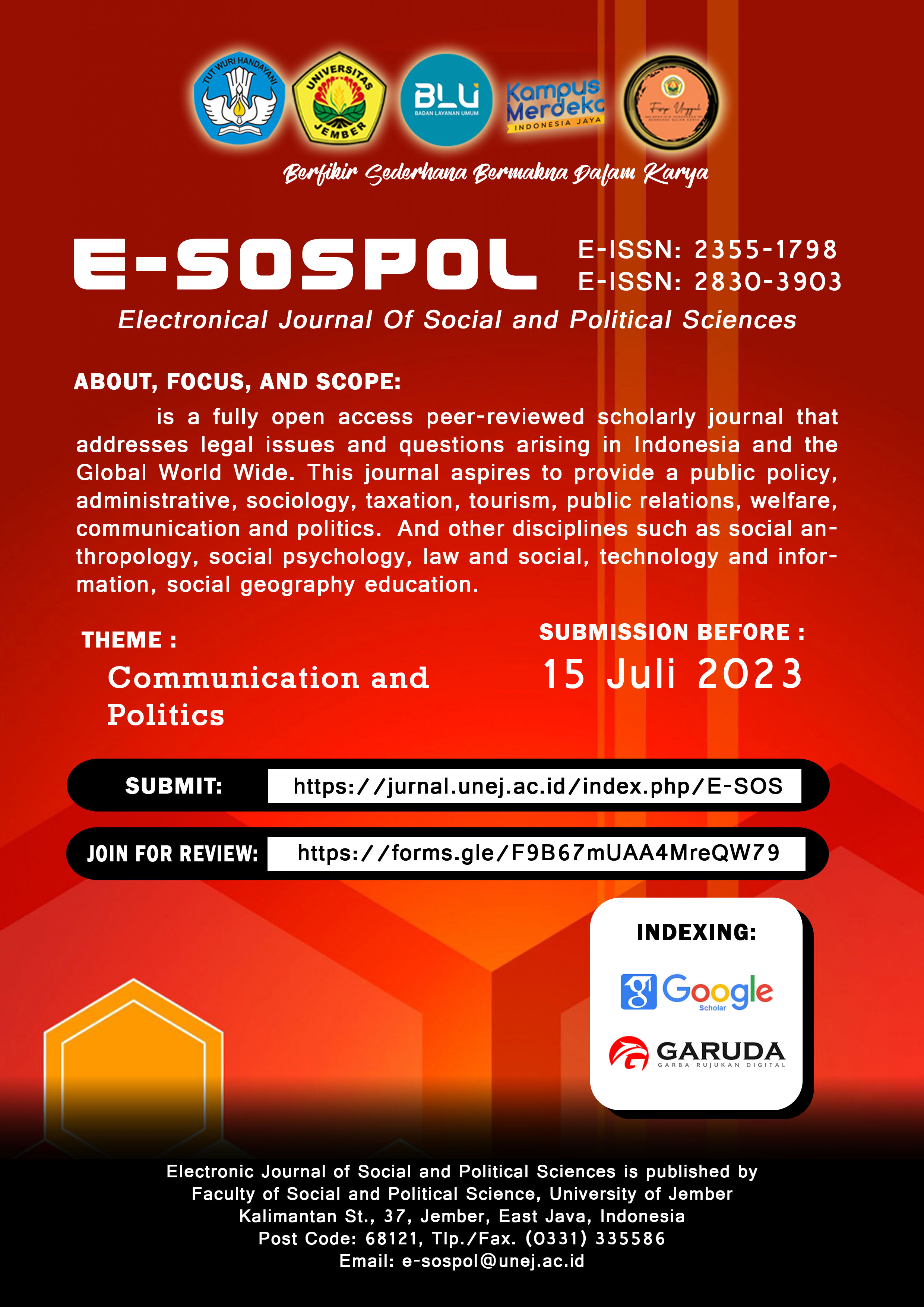Analisis Manajemen Kesan Pengguna Facebook
Abstract
The use of facebook as a social network site wins a lot of demands. Moreover, in Indonesia, facebook fever becomes a trend among young people. The phenomenon of facebook use in Indonesia has been widespread in many areas such as in Jember Town. The town is also supported by the existence of educational facilities such as state universities, one of which is the University of Jember. Facebook has become a means of making an impression management in facebook. This research was aimed to identify, describe and analyze the impression management of facebook users conducted by students of UNEJ in accordance with the impression management theory by Erving Goffman. The method used in this research was qualitative with purposive sampling technique. The research results showed that the impression that one wanted to show was in line with certain situation and condition depending on the audience. The impressions that one wanted to show up, among others, were impression of a university student, impression of people in pairs, impression of people who love traveling, impression of beautiful look, impression of confusion, impression of familiarity and impression of people who like sports. The impression management could not be separated from the appearance through clothing, makeup, and items such as purse or laptop, then the manner or style shown through expression described in photographs such smiling, staring eyes. It can be concluded that someone is considered more ideal when he is able to behave and act in accordance with common view as an individual who always interacts in community live, so facebook users always show and manage a good or positive impression in his friendship networks.
Keywords: impression management, facebook users, expected roles
Penulis yang mengusulkan naskahnya untuk dapat diproses penerbitannya pada e-SOSPOL dianggap telah menyetujui beberapa hal sebagai berikut:
1. Penulis tidak dapat menarik naskah yang telah usulkan untuk diproses hingga mendapat jawaban dari Ketua Dewan Penyunting atas status naskah artikel ilmiahnya (diterima atau ditolak untuk diterbitkan).
2. Penerbit tidak bertanggung jawab terhadap kasus plagiasi atas artikel yang terbit pada e-SOSPOL
3. Penerbit tidak bertanggung jawab atas data dan isi dari artikel yang diterbitkan pada e-SOSPOL, dan sepenuhnya merupakan tanggung jawab penulis.






.png)

